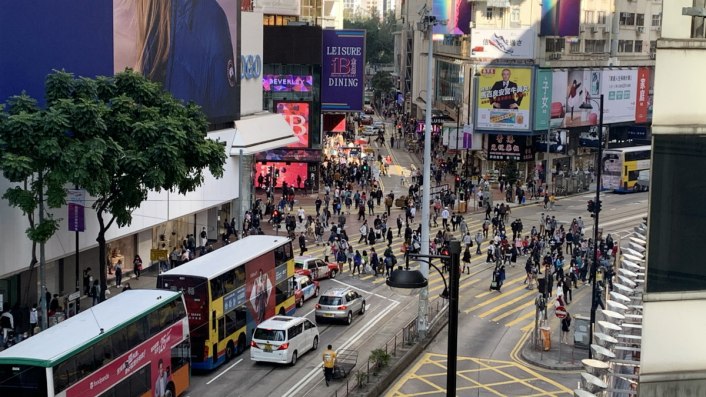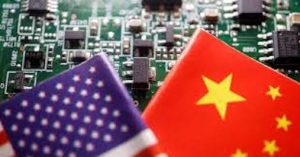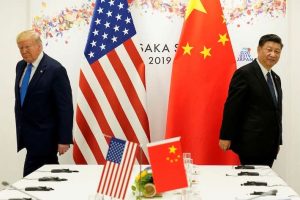Hong Kong ended 2019 on an ambivalent note – the at times violent protests and ubiquitous police-civilian conflicts had temporarily abated in the aftermath of the District Council elections, and whilst the inertia and ineptitude of the administration in responding to political outcries have persisted, the movement seemed to be running out of both steam and ideas as to its next steps.
Concurrently, in seeking potential salvaging of their electoral chances, pro-Establishment politicians recalibrated their policies and stances and pivoted away from the apparently untenable administration currently in office in the city.
Then came the coronavirus outbreak – which could have been a blessing in disguise for the government. After all, what better ways are there to win the hearts and minds of individuals preoccupied with livelihood and welfare issues – than delivering much-needed supplies and relief at calamitous times?
Whilst the outbreak is certainly a humanitarian disaster and a social tragedy (particularly exemplified by the concurrent episodes of great sacrifice and baffling selfishness in the mainland), it would have been the administration’s best shot – in a while – to shift public discourse onto more favorable territory.
This has clearly not been the case. Public disillusionment and dissatisfaction – in response to perceived under-supply of medical supplies, the administration’s callous treatment of frontline medical workers, the indeterminacy and uncertainty over the fates of Hong Kong residents in Hubei – have only soared over recent weeks.
Carrie Lam’s leadership has been panned extensively from both Establishment and Democratic camps, for its dogmatic recalcitrance, seeming politicization of non-political affairs, and bellicosity towards the public at large. There is little point crying over spilled milk, or berating individuals for past mistakes – outraged berating would lead to little to no action.
Undeniably, the outbreak has instilled a halt in the waves of violence that had taken Hong Kong by storm. Whilst sporadic flare-ups in vigilante violence (e.g. arson outside the housing estate originally designated to be the site of a new quarantine centre) have certainly occurred, it appears that Hong Kong is, at large, returning to a semi-sustained ceasefire. This is why now is the best time – and plausibly the last chance – for Carrie Lam’s administration to step up to the task of achieving genuine de-escalation and reconciliation over the vitriolic polarisation that split Hong Kong over the past eight months.
The administration has persistently emphasised that any talk of political reflection and reform could only take place when “law and order” have been adequately restored. This may be motivated out of a pragmatic worry – that making concessions in face of unfettered violence would only encourage further law-breaking behaviours; or it could be merely a stalling excuse, offered with the hope that de-escalation would happen without much active efforts on the part of official stakeholders.
To think the latter would be delusional – public anger and dissatisfaction with the administration have been reaching new heights over recent weeks, especially in light of what many perceive to be wanton neglect of public interests by bureaucrats. As much as some of the criticisms hurled towards the administration have been arguably unfair and exaggerated, the reality is brutally clear: the mass rebuking of Carrie Lam’s leadership is not going anywhere.
As for the former, it may be reasonable for bureaucrats to think that giving into violent protests sets a bad precedent – this is all the more a strong case for the government to commit now to reflecting upon its mistakes, investigating thoroughly allegations of police brutality and abuse, and initiating the necessary steps for Hong Kong’s reconciliation.
Furthermore, the outbreak provides a critical opportunity for Hong Kong to prudently re-assess its relations with mainland China. It is apparent that Hong Kong’s medical infrastructure, supplies, and resources are unrivalled within China; it is also crystal clear that the mainland benefits significantly from the financial and medical support of sympathetic individuals within the city.
Hong Kong could, and should do more to help its country. Yet a core prerequisite for Hong Kong to be able to do so is that our medical staff are not overworked and overburdened, to the extent that our healthcare system collapses under the compounded weight of both local and incoming mainland patients. If the administration had any political acumen, it should recognise that now is the prime time to make the political case, that selective devolution and reorientation of Hong Kong’s policymaking around its locals’ needs would be both necessary and beneficial towards consolidating Hong Kong’s long-term relationship with mainland China.
Let us not fool ourselves in thinking that the current brief respite from violence is here to stay. Apathetic inaction from the administration would not only spur a further pivot towards the opposition in the upcoming Legislative Council elections – they would also legitimise and encourage greater degrees of violence once Hong Kong resumes its (relative) normality. It is now – not later – when there exists a window of relative peace and stability (at least superficially, which is what most bureaucrats seem to care for these days), and hence a window for the government to commit to genuine reforms without coming across as capitulating in face of violence.
























